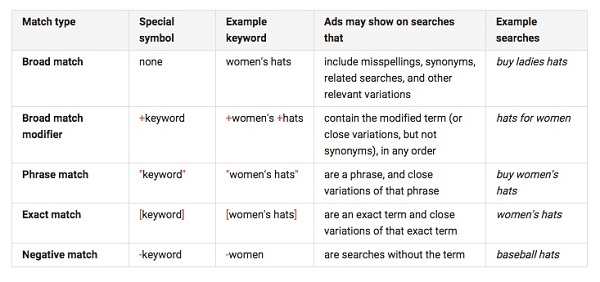Duplicate keywords in PPC advertising is a topic that never seems to tire – and one that is often misunderstood. Back in 2013, I wrote a post about AdWords duplicate keywords, and it’s received a number of questions from our readers since then. In this post, I’ll answer some of the burning questions coming from readers in hopes that it can help you navigate the duplicate keywords landscape, too.

1. Say you have two products in the same marketplace … won’t having two accounts targeting the same keywords give you twice the chance of people clicking on your ads, instead of the competition’s?
It may seem so at first blush, but this is a short-lived, outdated strategy that I wouldn’t recommend. It reminds me of the early days of search engine optimization in which people would create duplicate websites in hopes of showing up in more search results.
Trying to game the system in this way could have your account shut down. From the AdWords policies, it clearly states the following is prohibited:
Using the Google Network to gain an unfair traffic advantage over other participants in the auction. Examples: Affiliates that advertise on AdWords against the applicable affiliate program rules, promoting the same or similar content from multiple accounts on the same or similar queries.
Just as one, high-quality website is better than two lesser attempts, one PPC account is the way to go. Think of variations on how to use keywords to diversify your efforts.
2. What if I want both of my ads to show for one keyword in the same AdWords account?
Google will not show two ads from one account (unless by accident) – it’s one or the other. However, you can set ads to rotate for testing purposes to see which creative fares better.
3. What if you have multiple Search Network campaigns with the same keywords running at different times of the day – is this considered duplicate?
These would not be considered duplicates if they are running at different times. Take a restaurant, for example. It might have three different campaigns and landing pages for breakfast, lunch and dinner times. Three separate campaigns timed differently would make sense in this case. In fact, keeping them separate would allow separate bidding systems and adjustments.
4. We’ve set up some Google RLSA campaigns that are duplicates of our existing Search Network campaigns targeted to people who have already been to our site. Would you consider these duplicate keywords?
Since RLSA (Remarketing List for Search Ads) campaigns are driven by a remarketing list, the keyword would not be a duplicate. The help files specify that you can use the same keywords or bid on more generic keywords that perhaps wouldn’t have been as profitable on a regular Search Network campaign. The two basic RLSA strategies recommended by AdWords include the following:
You can bid on keywords that you don’t normally bid on just for people who have recently visited your site, or have converted on your site in the past. This can help you increase your sales. For example, you could bid on more generic keywords only for people who have previously purchased from your site.
You can optimize bids for your existing keywords for visitors on your remarketing lists. For example, you can increase your bid by 25% for those who previously viewed your website in the last 30 days. Or, you could show a different ad to site visitors who have placed items in a shopping cart but have not purchased them.
You can learn more about how to use RLSA in this “learn with Google” video:
5. I created duplicate campaigns, one with a cost-per-click (CPC) bidding strategy and the other with a cost-per-acquisition (CPA) strategy. Would this result in duplicate keywords?
If you’ve duplicated it exactly, then you’ve got duplicate keywords, regardless of the bidding method. So I wouldn’t suggest this strategy. If you want to test both bidding methods, try one at a time.
6. How about [red car] and [car red] (exact match)? Would these be considered duplicates?
Those would not be duplicates. In fact, in 2014, Google announced it would apply a close variants setting to all exact and phrase match keywords. From the help files, you can see the applications:

7. I have duplicate AdWords accounts for different countries we serve – is this a problem?
Copied accounts aren’t considered duplicate if they target separate geographic locations. Global companies often go this route to have separate location targeting and separate management.
Now that I’ve answered some of the burning questions around AdWords duplicate keywords, do you have more? Don’t hesitate to ask them in the comments below!






